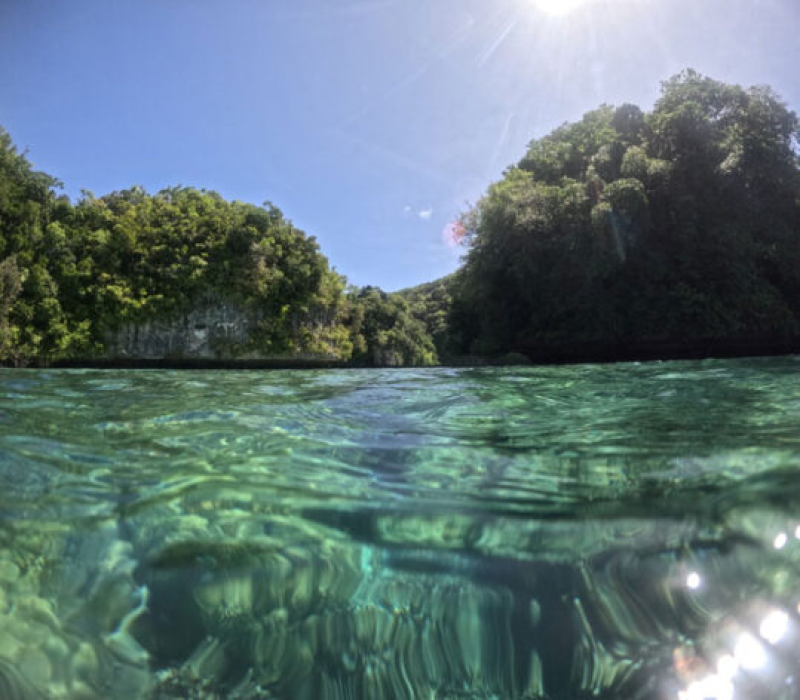- Sri Lanka urges Pakistan to reconsider India match |
- Centre of World Cup storm Mustafizur lands PSL deal with Lahore |
- BNP and Jamaat election camps vandalized in Gazipur |
- Dhaka requests UN rights office investigation into Hadi murder |
- Bangladesh establishes formal diplomatic ties with Grenada |
The Time to Launch a Decade of Island Resilience is Now

The Rock Islands, Palau.
Biodiversity loss, ocean degradation, pollution, and climate change are threatening our planet, yet islands—particularly small island nations—often receive little attention. Frequently labeled as vulnerable, these nations are in fact powerful beacons of resilience.
Their urgent challenges are driving bold innovation, deep collaboration, and remarkable ecological recoveries. That is why there is a call for the United Nations to establish a Decade of Island Resilience (2030–2040).
Stories of success on islands are as abundant as the islands themselves. Independent small island nations across the Pacific and Caribbean continue advocating for international recognition of their special circumstances, seeking increased financing and resources to tackle the triple planetary crisis of biodiversity loss, climate change, and pollution.
These islands, often highly indebted and geographically remote, rely heavily on coastal assets for revenue, including tourism and the blue economy. Many have launched innovative domestic and regional initiatives to conserve biodiversity and cultural heritage.
Examples include the Unlocking Blue Pacific Prosperity initiative inspired by the Micronesia Challenge and the 30×30 OECS Transformation Program, which advance progress toward the Global Biodiversity Framework. Holistic conservation efforts have yielded measurable results, from native seedlings covering forest floors to surging seabird populations on Bikar Atoll in the Marshall Islands.
On Ulithi Atoll in Yap State, restoration efforts have improved food security and access to essential resources, bringing Loosiep Island back from the brink of ecological collapse. Restored biodiversity, especially coastal and marine ecosystems, can trap tens of millions of metric tons of carbon, accelerate coral growth, regenerate native vegetation, and support significantly larger fish populations. Healthy ecosystems also enhance island resilience to climate impacts.
While islands face daily challenges on the frontlines of the triple planetary crisis, their innovative and optimistic approaches demonstrate a commitment to fighting back. Due to their unique geography, islands serve as natural testing grounds for scalable conservation strategies, where science-based biodiversity restoration, ocean action, and climate resilience can be developed, perfected, and expanded globally.
Representatives of small island nations, conservation scientists, and community-led initiatives support an island-led UN Decade of Island Resilience, which would elevate islands as global priorities for climate resilience and holistic restoration.
Island Conservation, an NGO with over 30 years of experience restoring island ecosystems, proposed the initiative in May 2025. Last month, the International Union for Conservation of Nature adopted the call as an official resolution. The Global Islands Partnership (GLISPA) will collaborate with Island Conservation to transition the resolution into the Island Biodiversity Coalition, a platform to catalyze island-led progress.
If established, the Decade of Island Resilience would coordinate scientific research, mobilize resources, amplify indigenous and local voices, integrate traditional knowledge, scale successful approaches, and strengthen domestic capacity for implementation.
Timing is critical. With only five years remaining in the 2030 Agenda, global small islands offer contained, tangible contexts to test environmental solutions. Success on islands could provide a blueprint for addressing global environmental crises.
The Decade of Island Resilience would foster ambitious partnerships between governments, scientific institutions, civil society, private sector innovators, and island communities. The choice is clear: invest in island resilience now, or risk losing irreplaceable biodiversity, cultural heritage, and proven solutions.
The world’s islands are ready to lead—are we ready to support them?
Authors: Penny Becker, PhD, CEO, Island Conservation; Hon. Ralph Regenvanu, Minister for Climate Change, Vanuatu; Ambassador Safiya Sawney, Special Envoy for Climate Change, Grenada, Board Chair of GLISPA

